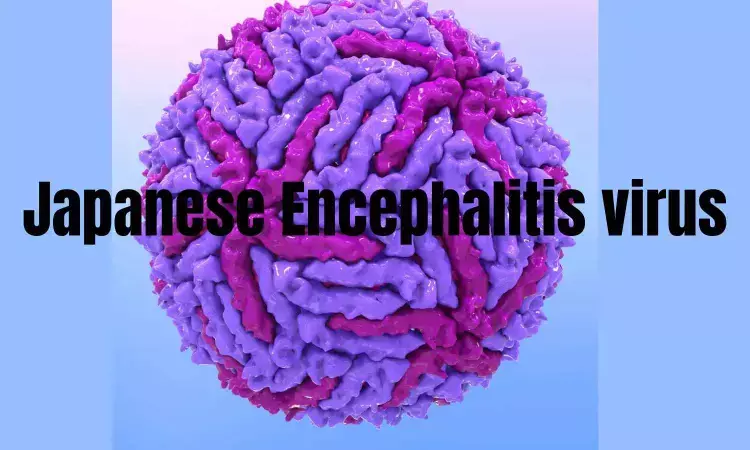- Home
- Medical news & Guidelines
- Anesthesiology
- Cardiology and CTVS
- Critical Care
- Dentistry
- Dermatology
- Diabetes and Endocrinology
- ENT
- Gastroenterology
- Medicine
- Nephrology
- Neurology
- Obstretics-Gynaecology
- Oncology
- Ophthalmology
- Orthopaedics
- Pediatrics-Neonatology
- Psychiatry
- Pulmonology
- Radiology
- Surgery
- Urology
- Laboratory Medicine
- Diet
- Nursing
- Paramedical
- Physiotherapy
- Health news
- Fact Check
- Bone Health Fact Check
- Brain Health Fact Check
- Cancer Related Fact Check
- Child Care Fact Check
- Dental and oral health fact check
- Diabetes and metabolic health fact check
- Diet and Nutrition Fact Check
- Eye and ENT Care Fact Check
- Fitness fact check
- Gut health fact check
- Heart health fact check
- Kidney health fact check
- Medical education fact check
- Men's health fact check
- Respiratory fact check
- Skin and hair care fact check
- Vaccine and Immunization fact check
- Women's health fact check
- AYUSH
- State News
- Andaman and Nicobar Islands
- Andhra Pradesh
- Arunachal Pradesh
- Assam
- Bihar
- Chandigarh
- Chattisgarh
- Dadra and Nagar Haveli
- Daman and Diu
- Delhi
- Goa
- Gujarat
- Haryana
- Himachal Pradesh
- Jammu & Kashmir
- Jharkhand
- Karnataka
- Kerala
- Ladakh
- Lakshadweep
- Madhya Pradesh
- Maharashtra
- Manipur
- Meghalaya
- Mizoram
- Nagaland
- Odisha
- Puducherry
- Punjab
- Rajasthan
- Sikkim
- Tamil Nadu
- Telangana
- Tripura
- Uttar Pradesh
- Uttrakhand
- West Bengal
- Medical Education
- Industry
Japanese Encephalitis Outbreak: Guwahati Medical College Hospital reports 10 deaths

Guwahati: Flood continue to plague Assam, the vector-borne disease Japanese Encephalitis (JE) has claimed 10 lives at the Guwahati Medical College and Hospital (GMCH) this year so far.
Dr Abhijit Sarma, Superintendent of Guwahati Medical College and Hospital (GMCH), told ANI that, since April 1 this year, 44 cases of JE have been reported at GMCH, out of which 10 people have died.
"Since April 1 this year, 44 cases have got admitted. 25 cases are being treated. Yesterday we lost 4 cases. We have lost 10 cases until now. The rest of the cases are doing well and I believe that very soon we will be able to discharge those cases. Last year, we had 54 cases," Dr Abhijit Sarma said.
Also Read:Dr Mansukh Mandaviya reviews preparedness of States for preventing vector-borne diseases
He also talked about preventive measures and awareness among the people.
In the past few years, Assam has been recording a sharp hike in vector-borne diseases, including dengue and Japanese Encephalitis that pose significant health risks and are cause for concern, news agency ANI reported.
A person with the disease Japanese Encephalitis will typically have either no symptoms at all or only minor ones. Fever and headache are moderate symptoms, while nausea, vomiting, stiff neck, speech impediment, and spastic paralysis are severe ones.
For prevention, people should wear long-sleeved clothing, use mosquito nets, insecticides, and repellents, clean standing water and drains, and maintain a clean environment around their homes.
It is advised to get immunised in order to prevent contracting JE. In areas where the Japanese encephalitis virus (JEV) is prevalent, a vaccine against it has been included in the Indian Universal Immunisation Programme (UIP).
Assam recorded the highest number of JE-related deaths in 2006. The disease had caused almost 1,500 deaths.
Abhijit Sharma, superintendent of GMCH, said that the people of the state must follow the protocols laid down by the health department in view of the outbreak of Japanese encephalitis, adds ANI.
Kajal Rajput joined Medical Dialogues as an Correspondent for the Latest Health News Section in 2019. She holds a Bachelor's degree in Arts from University of Delhi. She manly covers all the updates in health news, hospitals, doctors news, government policies and Health Ministry. She can be contacted at editorial@medicaldialogues.in Contact no. 011-43720751


